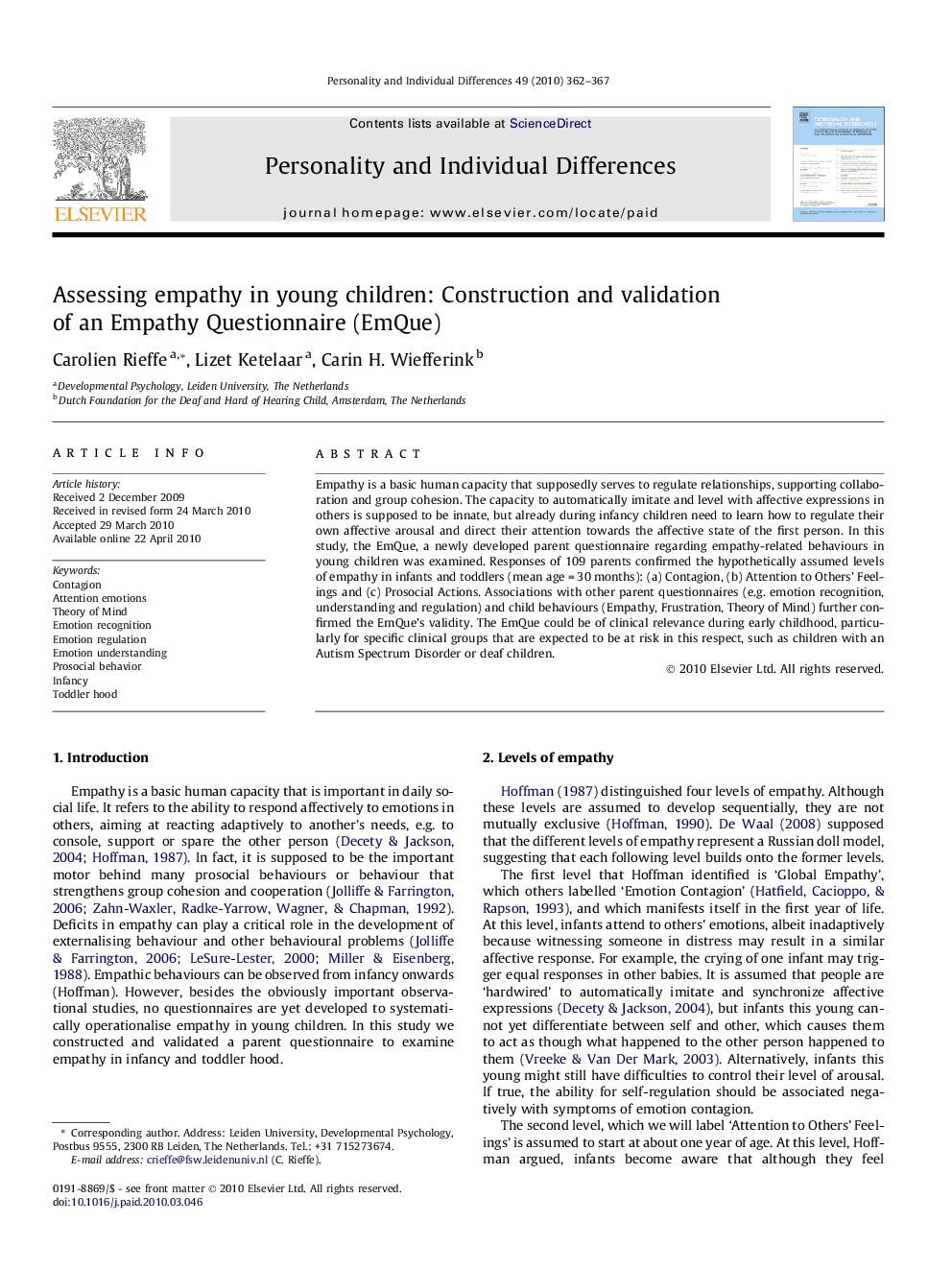| Article ID | Journal | Published Year | Pages | File Type |
|---|---|---|---|---|
| 891847 | Personality and Individual Differences | 2010 | 6 Pages |
Empathy is a basic human capacity that supposedly serves to regulate relationships, supporting collaboration and group cohesion. The capacity to automatically imitate and level with affective expressions in others is supposed to be innate, but already during infancy children need to learn how to regulate their own affective arousal and direct their attention towards the affective state of the first person. In this study, the EmQue, a newly developed parent questionnaire regarding empathy-related behaviours in young children was examined. Responses of 109 parents confirmed the hypothetically assumed levels of empathy in infants and toddlers (mean age = 30 months): (a) Contagion, (b) Attention to Others’ Feelings and (c) Prosocial Actions. Associations with other parent questionnaires (e.g. emotion recognition, understanding and regulation) and child behaviours (Empathy, Frustration, Theory of Mind) further confirmed the EmQue’s validity. The EmQue could be of clinical relevance during early childhood, particularly for specific clinical groups that are expected to be at risk in this respect, such as children with an Autism Spectrum Disorder or deaf children.
